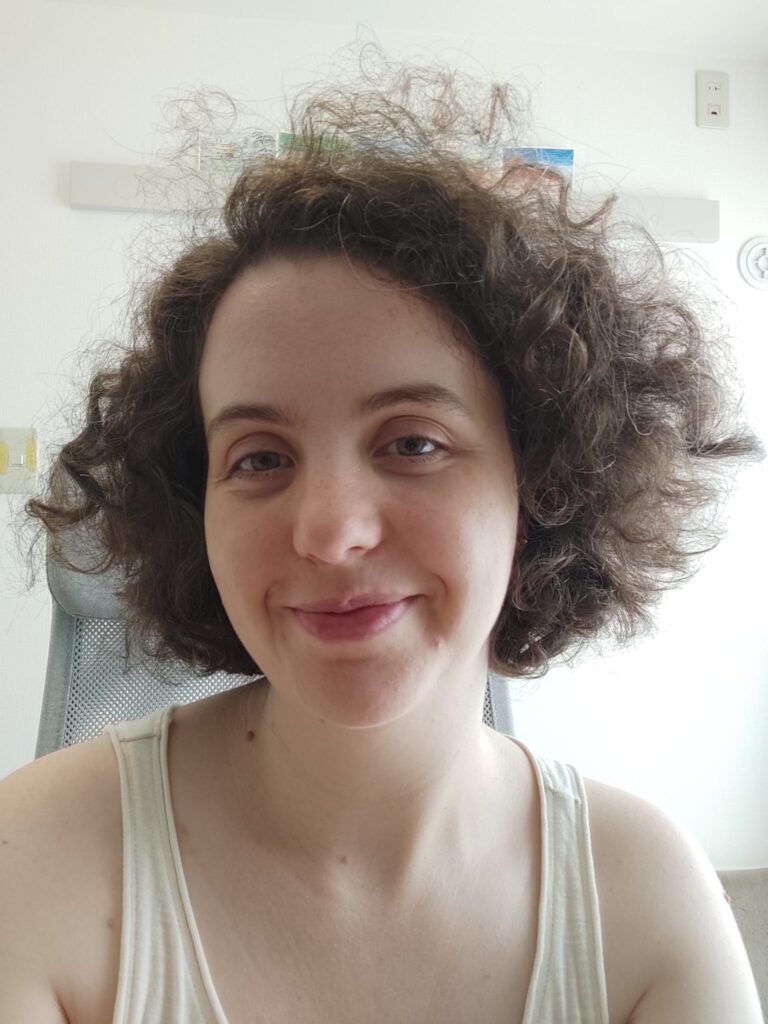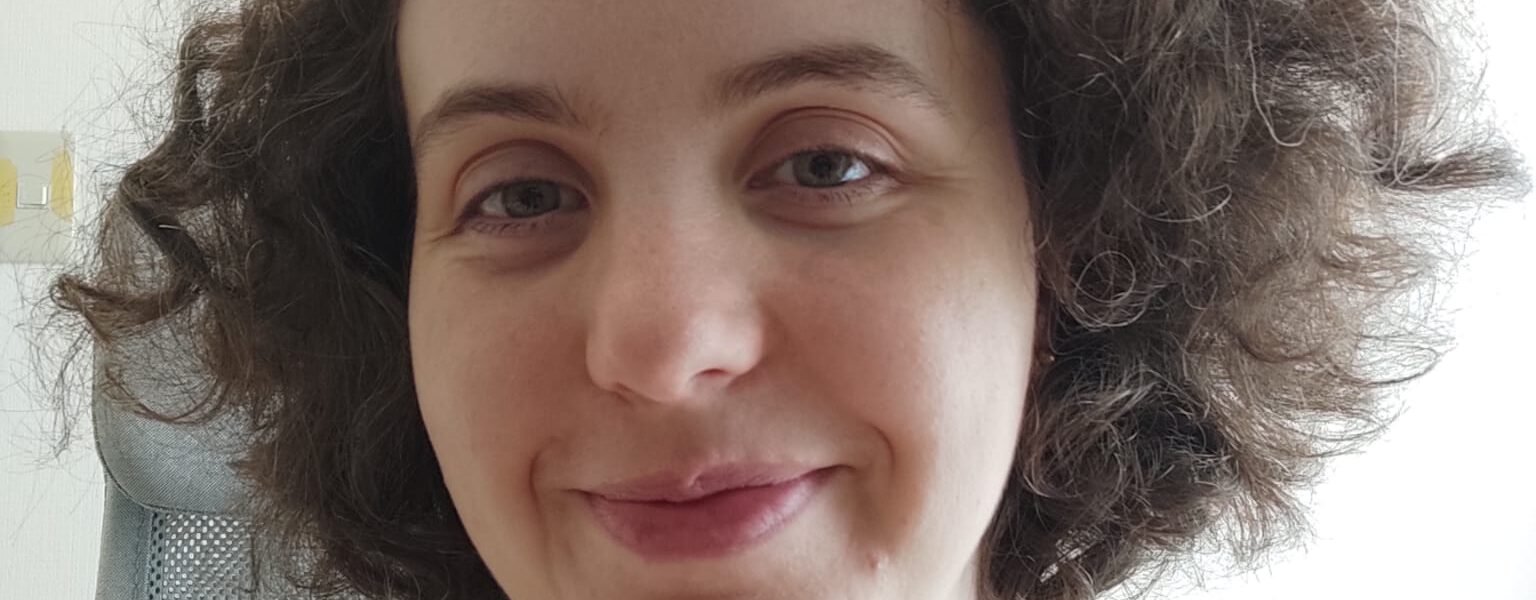The beauty industry profits from making you believe that you’re not pretty enough.

I’ve been meaning to write an article about this topic since I watched a Ted Talk titled Own Your Face, which I’m very happy to say has reached 10 million views on Youtube. It’s an inspiring talk about beauty standards, comformity, and accepting and loving your body the way it is – even if you have a serious condition, like the speaker (you can watch the talk here).
I chose this video for one of the Conversation Club sessions I hold with my students, and I’m glad to say that our discussion was very fruitful!
One of my students pointed out that, in this capitalist world, the beauty industry has become one of the most profitable industries – and they managed to do so by making us feel insecure about our appearance. If people with regular bodies feel insecure about their appearance, just imagine how hard it must have been for the speaker of that Ted Talk to come to terms with his appearance.
I totally agree with my student. In this world we live in, it doesn’t take much for you to feel “inappropriate”. According to the soldiers of the beauty industry (that’s what I like to call them) – influencers, celebrities, cosmetic and fashion brands, plastic surgeons, dermatologists, dentists, gym instructors, hairstylists, manicurists, and even ourselves (influenced by all the others mentioned above) – our bodies are never good enough.
It’s as if our bodies weren’t part of nature. As if they weren’t natural. As if they can and should comform to the beauty standards of the time, like playdough.
Have you heard – or even thought – any of the statements below?
“Your hair is too this or that, but don’t worry, we have a solution for you!”
“Oh my God, you have too many white hairs! It’s time to start dyeing your hair.”
“Your teeth look too this or that, but there’s this new technology that can change that.”
“Your body is too this or that, I’ll plan the perfect exercise routine, diet, and list of suplements you need to take to change that.”
“Your skin has too much of this or that, but this new makeup will conceal it all and make you look gorgeous!”
“Cuticles are gross! You should remove them all and always keep your nails painted to look polished and neat!”
“Your jawline is too this or that, but we can change that with surgery. Also, your eyes, and neck, and cheeks, and…”
“Your lips are not full enough and your skin isn’t tight enough. You urgently need some Botox and fillers”
“Your boobs are too small, you’d better get some implants.”
“Look how many wrinkles that actress has on her forehead and eyes when she smiles. Oh my God!”
And the list goes on and on.
Our society has adapted to the empire of beauty and we have learned to judge our bodies – and other people’s bodies, for that matter – based on the beauty standards of the time we’re living in.
We learn from a young age how to perceive our bodies
As a teenager, puffy hair like mine was far from being considered beautiful. I used to be called “capacete” (helmet, in English) by my classmates at school. At home, my mother also used to say “Eliana, you need to tame your hair!”. That led me to hate my hair and never feel good wearing it loose. To this day, I still struggle a little to feel comfortable wearing my hair the way I’m doing it in the picture above – loose, full, and with undefined curls. But I’m working on it.
As a teen, I also started to notice that I don’t have a very defined jawline and that the slightest bend of my head would reveal my double chin, which I became very self-concious about.
And the more I consumed content from the soldiers of the beauty empire, the more flaws I began to find in my body.
In my late teens, I wanted to dress like the other girls to look attractive. I fell prey to the fashion empire. I started wearing tight tops that showed a bit of my tummy and tight low-rise jeans. I felt very uncomfortable, but I wanted to comform. I wanted to look like everybody else.
Thankfully, I’ve always cared very much about my health and couldn’t bear wearing uncomfortable clothes, so that phase of my life didn’t last long. Since most beauty procedures and cosmetics are harmful to our bodies and those clothes didn’t feel comfortable at all, I started to think more critically about the beauty and fashion industries.
I went back to the clothes I felt like wearing, wore makeup much more rarely – and by “makeup” I mean mascara, eyeshadow, and lipstick – stopped straightening my hair (although I didn’t do it very often, anyway), and stopped doing my nails, except for trimming them.
It felt good! My friends used to say that I would look so much prettier if I dressed more girly and wore makeup, but that didn’t change my mind. I was ok with how I looked and also proud of myself for being taking care of my body.
Setting boundaries
However, in my early 30s, another insecurity began to creep in because I’d gained little weight. I was still within the “normal weight for my height”, but as I looked a bit more plump, my mom and brother began to point it out and say that I needed to watch out for my weight.
I understand that our society has normalized commenting on people’s bodies. Friends and family often do it out of concern (“You’ve put on weight”) or as a compliment (“You’ve lost weight!”). I’m ashamed to say that I’ve done this to my friends as well. The remarks usually come with advice on how to control your weight. I used to take those comments lightly, especially because I wasn’t feeling uncomfortable in my own skin.
But one day, perhaps influenced by my mom and brother’s comments on my weight, my partner decided to do the same. He said I was too fat. Just like that. Bluntly. Without even trying to soften the blow with something like “Maybe we should go on a diet together” or “Maybe we should cut back on snacks” to make it sound more caring than critical.
At first, I felt deeply hurt and self-conscious. But not long after, the pain turned into fuel to start setting boundaries with the people around me. My weight gain was not affecting my health in any way – therefore, it was nobody’s business but mine. And I made that clear.
If a comment is genuinely caring and gently worded, I might still accept it. But if it’s just to criticize my appearance, it won’t be well received. And now, the people around me know that.
Today, I’m happy to say that I feel much more confident in my body. I see it as my avatar – a unique vessel that God gave me to live in this world – and I see beauty in it. I’ve returned to my usual weight, which is still outside the beauty standard, but I’ve never felt better in my own skin. My body is healthy, strong, comfortable in my clothes, and it allows me to explore this world. It’s perfect!
After watching that Ted Talk, I realized that, by the end of it, the speaker’s personality, humor, intelligence, and confidence completely overshadowed any physical differences in his face. That moment reaffirmed to me how little our appearance actually matters compared to what society makes us believe.
Aging
Now, about aging – I’m currently 34, and I’ve started to notice some changes: wrinkly lines on my chest in the morning, more wrinkles around my eyes and forehead when I make expressions, more visible veins on the backs of my hands, more white hairs, new spots on my skin. And you know what? I couldn’t care less. In fact, watching my body change is fascinating. It’s a sign that I’m alive. I know I’m still young and just beginning to see these changes, but the point is — I don’t dread them.
I remember that, as a child, I found one of my mom’s friends’ hands charming with all her clearly visible veins. And I still find her hands charming to this day. I also find the women mentioned below very beautiful in their older age. They have embraced aging naturally, and I look up to them.
Here are a few quotes from them:
“Once you mess with your face, you can’t get it back” – Jamie Lee Curtis, 64
“Botox only makes you look like you’re in a satanic cult.” – Stevie Nicks, 74
“I’d rather see my face aging than a face that doesn’t belong to me at all.” – Cameron Diaz, 50
“When you look at somebody who’s had their face altered in some way, it just looks weird.” – Julianne Moore, 62
“[Plastic surgery] is not a normal thing to do, and this culture that we’ve created that says it’s normal is not normal.” – Emma Thompson, 63
“It’s unfortunate we live in such a panicked, dysmorphic society where women don’t even give themselves a chance to see what they’ll look like as older persons.” – Julia Roberts, 55
If the pressures of the empire of beauty feel too loud and overwhelming, my advice is: stop consuming content from people who promote the endless chase for perfection. Instead, follow those who appreciate their bodies for what they naturally are – like the ones I mentioned above. It’ll help you view your own body through a different lens and give you ammunition to respond to unwelcome comments on your looks in a way that will leave the other person thinking.
I hope you enjoyed reading this article, and I’ll see you in the next one!
Eliana Capiotto
Have you seen the article about my first medical appointment in Japan? No? So check it out here!
Do you want to practice your listening skills, too? Yes? So, check out my Youtube channel here!
 | Pothos – Escola de Inglês OnlineNa Pothos, a minha escola de inglês online, oferecemos vários cursos para atender às necessidades dos nossos alunos. Os nossos cursos são:
As matrículas estão abertas. Acesse este link (clique aqui) e preencha o formulário de contato. Eu entrarei em contato com você em breve. 😊 |


[…] já viu o meu penúltimo artigo sobre a indústria da beleza? Não? Então clica aqui e vem praticar o seu inglês mais um pouco com ele. […]